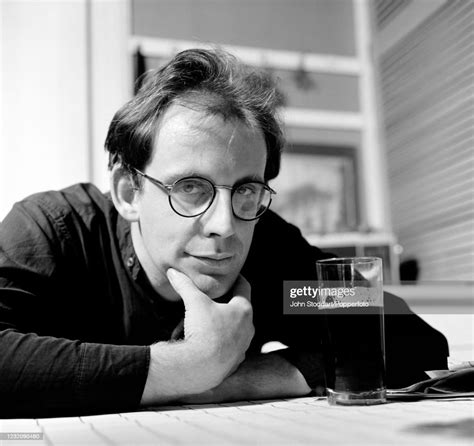A Quote by Susan Sontag
Most writers I know have switched to word processors. I haven't but I'm very curious about why people like it so much. I think it has something to do with the fact that at last writing, which has been such an old-fashioned, artisanal activity, even on a typewriter, has now entered the central domain of modern experience which is that of making copies, being involved in the world of duplicates and machine-mediated activities.
Related Quotes
I hate the new word processors that want to tell you, as you're typing, that you made a mistake. I have to turn off all that crap. It's like, shut up - I'm thinking now. I will worry about that sort of error later. I'm a human being. I can still read this, even though it's wrong. You stupid machine, the fact that you can't is irrelevant to me.
As you get drawn more and more into other activities, like political activities, very demanding, you have to find different rhythms of writing; I think that's the word I'm looking for, rhythms of creativity which then, of course, become very intense. I think your writing then tends to be very intensified simply because there are other demands which seem equally important.
One of my favorite pieces of advice about being a writer came from a very formative teacher I had as an undergraduate, named John Hersey. On our last day of class together, which was also John Hersey last day before retirement, he said, "Remember, the world doesn't need any new writers." Which at first didn't seem like great advice, but when you unpacked it, it was really that it's not enough to be confident in what you do; be conscious of bringing something to the world of readers and writers that it hasn't seen before. Something idiosyncratic.
You know, it's a funny thing about writers. Most people don't stop to think of books being written by people much like themselves. They think that writers are all dead long ago--they don't expect to meet them in the street or out shopping. They know their stories but not their names, and certainly not their faces. And most writers like it that way.
I have a hard time writing. Most writers have a hard time writing. I have a harder time than most because I'm lazier than most. [...] The other problem I have is fear of writing. The act of writing puts you in confrontation with yourself, which is why I think writers assiduously avoid writing. [...] Not writing is more of a psychological problem than a writing problem. All the time I'm not writing I feel like a criminal. [...] It's horrible to feel felonious every second of the day. Especially when it goes on for years. It's much more relaxing actually to work.
I think that very often younger writers don't appreciate how much hard work is involved in writing. The part of writing that's magic is the thinnest rind on the world of creation. Most of a writer's life is just work. It happens to be a kind of work that the writer finds fulfilling in the same way that a watchmaker can happily spend countless hours fiddling over the tiny cogs and bits of wire. ... I think the people who end up being writers are people who don't get bored doing that kind of tight focus in small areas.
Normally, most writers don't say, 'I'm going into a mild hypnotic trance.' Typically, they don't know how they do it. Most people, when they have a good experience writing, they're well placed in that state, which is also sometimes called a 'flow state.' If you don't have trouble, you don't have to think about it.
By inner experience I understand that which one usually calls mystical experience: the states of ecstasy, of rapture, at least of meditated emotion. But I am thinking less of confessional experience, to which one has had to adhere up to now, that of an experience laid bare, free of ties, even of an origin, of any confession whatever. This is why I don't like the word mystical.
We know for a fact the Russians tried to change the outcome of our election, attacking the very fundamental of democracy. We know they did that. We need to know how, we need to know why, and most of all we need to know what to do to prevent this kind of activity, which they continue to carry on in free nations around the world.
I got so discouraged, I almost stopped writing. It was my 12-year-old son who changed my mind when he said to me, "Mother, you've been very cross and edgy with us and we notice you haven't been writing. We wish you'd go back to the typewriter. That did a lot of good for my false guilts about spending so much time writing. At that point, I acknowledged that I am a writer and even if I were never published again, that's what I am."



































